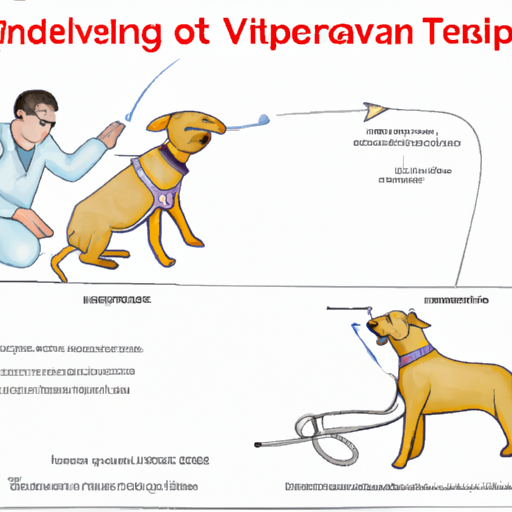Understanding Collapsed Trachea
Collapsed trachea, a common condition in small breeds, can be a scary diagnosis for your beloved pet. It occurs when the tracheal rings weaken, causing distress in breathing. You can recognize this as a harsh, goose-honk cough that worsens in stressful situations.
Causes and Symptoms of Collapsed Trachea
Typically, the causes of a collapsed trachea are mostly congenital and age-related. Small breeds like Yorkshire Terriers, Pomeranians, and Poodles are more prone to the condition.
Some common symptoms include:
- Goose-honk cough
- Difficulty in breathing
- Blue gums
- Fainting
Diagnosis and Treatment
If you suspect that your dog is suffering from a collapsed trachea, it’s crucial to get a proper diagnosis from a vet. The vet may use x-rays, endoscopy or fluoroscopy for the diagnosis.
| Diagnostic Test | Description |
|---|---|
| X-Ray | An x-ray can show an enlarged heart or abnormalities in the trachea. |
| Endoscopy | This involves inserting a small camera into the trachea to view the collapse. |
| Fluoroscopy | This live-motion x-ray can show the trachea in action, highlighting any collapse. |
Upon diagnosis, treatment can be medical or surgical, depending on the severity of the condition.
- Medical Treatment: This includes cough suppressants, sedatives, bronchodilators, and antibiotics to control secondary infections.
- Surgical Treatment: In severe cases, vets may recommend surgery, involving placing rings or a stent to keep the trachea open.
Managing a Dog with Collapsed Trachea
You, as a caregiver, play a critical role in managing your dog’s condition. Here are some helpful tips:
- Keep your dog calm and stress-free.
- Ensure they maintain a healthy weight.
- Use a harness instead of a collar.
- Avoid exposure to smoke and dust.
- Regular vet check-ups.
Prognosis and Quality of Life
While a collapsed trachea is a lifelong condition, with proper management, your dog can lead a happy and fulfilling life. Though the cough may never completely disappear, reducing triggers and maintaining their overall health can significantly improve their quality of life.
Frequently Asked Questions
Q: Can a dog live with a collapsed trachea?
A: Yes, with proper management and treatment, a dog can live a happy life with a collapsed trachea.
Q: Does a harness help?
A: Yes, a harness instead of a collar can relieve pressure on the trachea and help control the cough.
Q: Is surgery always necessary?
A: No, surgery is usually the last resort for severe cases. In many instances, medical management is sufficient.
Remember, your love and care can make a world of difference to your furry friend dealing with a collapsed trachea. Trust your vet, but also trust yourself. You know your dog best.



